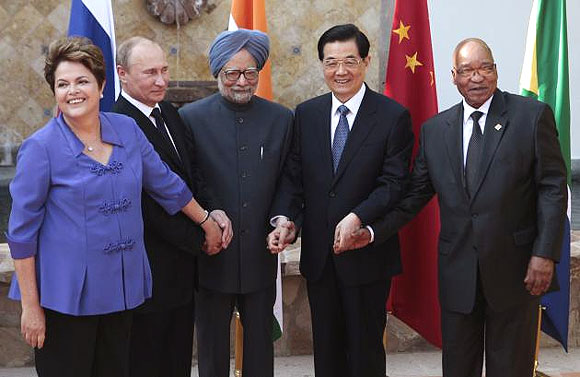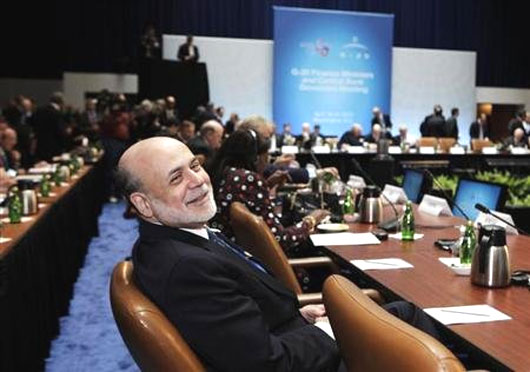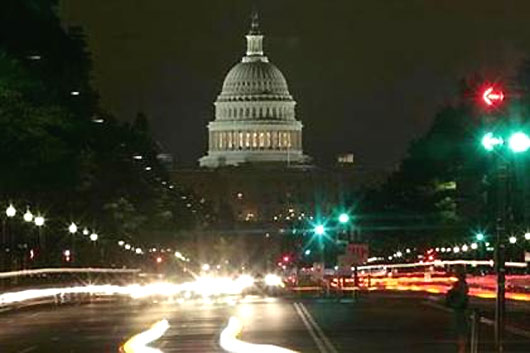
Major emerging-market nations will work together to limit the effects that a strong US dollar could have on their economies as the Federal Reserve signals plans to scale back its massive stimulus program, the Brazilian government said on Monday.
Brazilian President Dilma Rousseff and her Chinese counterpart, Xi Jinping, discussed ways to strengthen policy coordination on Monday in a telephone conversation, said Thomas Traumann, spokesman for the Brazilian government.
Rousseff will contact other leaders of the BRICS group, which include Russia, India and South Africa, later this week to discuss concrete measures.
"The BRICS will decide on coordinated action related to the global appreciation of the US dollar at a meeting in July in Russia," Traumann said without elaborating.
Click on NEXT for more...

Brazil and other developing nations - until recently the main engines of the global economy - are growing anxious about the expected withdrawal of stimulus in the United States, which has sparked a sell-off in local markets.
In his conversation with Rousseff, China's Xi stressed that "new and complex" developments in the global markets called for closer coordination among the BRICS, a Brazil-based diplomat told Reuters.
"There is a consensus that the BRICS need to strengthen communication and coordination at a time when we have more complex and new factors affecting global markets," said the official, who was briefed on the presidents' discussion.
The official, who asked for anonymity, gave no specifics.
Click on NEXT for more...

Expectations that the US Federal Reserve will scale back its bond-buying program has dragged the Brazilian real to four-year lows, prompting the government to remove capital controls in a bid to bring more dollars into the economy.
Brazilian stocks have also plummeted to more than four-year lows.
The sharp depreciation of the real has raised worries about the risk to local companies with large debt in US dollars. A weaker currency could also stoke already-high inflation in Brazil by raising the value of imported goods.
Click on NEXT for more...

Policy reversal
Only a few months ago, Brazil and other emerging market economies blamed the ultra-loose monetary policy of developed nations for pushing up the value of their currencies and making their exports less competitive.
The specter of less stimulus has curbed the capital inflows to countries like Brazil, deteriorating their external accounts and pushing down the price of crucial commodity exports.
Emerging market nations at the G20 have called for the United States to be clearer in its policy communication with markets to avoid more volatility, a Brazilian official said.
Click on NEXT for more...

"Emerging-market nations are concerned about the fallout of the stimulus withdrawal," said the official, who also asked for anonymity. "But this time around we have more reserves and tools to tackle the problem."
During the 2008-2009 global financial crisis, central banks from several major economies agreed to carry out currency swap agreements among themselves to bolster liquidity.
In March, Brazil and China agreed to set up a currency swap line that allowed them to trade the equivalent of up to $30 billion per year in their own currencies. The swap is meant to help businesses in both countries weather currency volatility.
Additional reporting by Maria Carolina Marcello